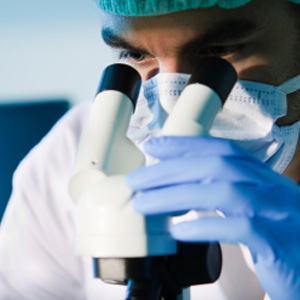
Danish scientists testing a novel HIV treatment in human trials contend that they're confident their strategy will result in a cure for the AIDS-causing virus, according to news reports.
The technique already tested successfully in lab experiments involves freeing the HIV virus from DNA cells, where it collects in "reservoirs," and bringing it to the surface of the cells, the Telegraph in Great Britain reported. Once the virus has surfaced, it can be permanently destroyed by a "vaccine" that primes the body's natural immune system, the researchers said.
"I am almost certain that we will be successful in releasing the reservoirs of HIV," said Dr Ole Sogaard, a senior researcher at the Aarhus University Hospital in Denmark, according to the news report. So far the clinical trials are "promising," he said.
Human clinical trials are under way, said Sogaard, adding that early signs are "promising. I am almost certain that we will be successful in releasing the reservoirs of HIV," he said.
A challenge to the immune system
Fifteen patients are currently taking part in the trials, and if they are found to have successfully been cured of HIV, the "cure" will be tested on a wider scale, the Telegraph reported.
"The challenge will be getting the patients' immune system to recognize the virus and destroy it. This depends on the strength and sensitivity of individual immune systems," Sogaard said, the newspaper reported.
Sogaard said a "cure" is different than a preventative vaccine. That means continued awareness of unsafe behaviors such as avoiding unprotected sex or sharing needles for intravenous drug use is still the key to combating HIV.
If the Danish researchers are successful, it would obviously represent a huge step in the battle against HIV.
A large study of an experimental HIV vaccine was halted recently because the shots weren't preventing infection, the U.S. National Institutes of Health said last week.
The clinical trial included about 2,500 people, mostly gay men, in 19 cities. Half of the participants were given the vaccine developed by the NIH and half received placebo shots. A safety review found that slightly more people who had received the vaccine later became infected with HIV. The reasons for this aren't clear.
While the vaccinations are being stopped, the NIH said it will continue to track the study participants' health, the Associated Press reported.
Numerous attempts to develop an HIV/AIDS vaccine have failed.
More information
To learn more about HIV, visit the U.S. National Library of Medicine.




 Publications
Publications
 Partners
Partners











